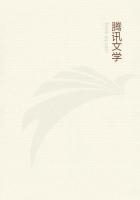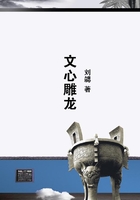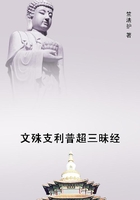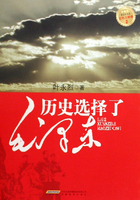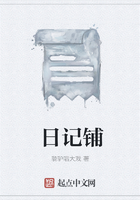Crudity with him is not extenuated by malice or glossed over by elegance. He is neither refined nor pungent; is quite incapable, like the younger Crébillon, of depicting the scapegrace of ability. He is a new-comer, a parvenu in standard society; you see in him a commoner, a powerful reasoner, an indefatigable workman and great artist, introduced, through the customs of the day, at a supper of fashionable livers. He engrosses the conversation, directs the orgy, or in the contagion or on a wager, says more filthy things, more "gueulées,"than all the guests put together[29]. In like manner, in his dramas, in his "Essays on Claudius and Nero," in his "Commentary on Seneca,"in his additions to the "Philosophical History" of Raynal, he forces the tone of things. This tone, which then prevails by virtue of the classic spirit and of the new fashion, is that of sentimental rhetoric. Diderot carries it to extremes in the exaggeration of tears or of rage, in exclamations, in apostrophes, in tenderness of feeling, in violences, indignation, in enthusiasms, in full-orchestra tirades, in which the fire of his brains finds employment and an outlet. -On the other hand, among so many superior writers, he is the only genuine artist, the creator of souls, within his mind objects, events and personages are born and become organized of themselves, through their own forces, by virtue of natural affinities, involuntarily, without foreign intervention, in such a way as to live for and in themselves, safe from the author's intentions, and outside of his combinations. The composer of the "Salons," the "Petits Romans," the "Entretien," the "Paradoxe du Comédien," and especially the "Rêve de d'Alembert" and the" Neveu de Rameau "is a man of an unique species in his time. However alert and brilliant Voltaire's personages may be, they are always puppets; their action is derivative; always behind them you catch a glimpse of the author pulling the strings. With Diderot, the strings are severed; he is not speaking through the lips of his characters; they are not his comical loud-speakers or puppets, but independent and detached persons, with an action of their own, a personal accent, with their own temperament, passions, ideas, philosophy, style and spirit, and occasionally, as in the "Neveu de Rameau," a spirit so original, complex and complete, so alive and so deformed that, in the natural history of man, it becomes an incomparable monster and an immortal document. He has expressed everything concerning nature,[30] art morality and life[31] in two small treatises of which twenty successive readings exhaust neither the charm nor the sense. Find elsewhere, if you can, a similar stroke of power and a greater masterpiece, "anything more absurd and more profound!"[32] - Such is the advantage of men of genius possessing no control over themselves. They lack discernment but they have inspiration. Among twenty works, either soiled, rough or nasty, they produce a creation, and still better, an animated being, able to live by itself, before which others, fabricated by merely intellectual people, resemble simply well-dressed puppets. - Hence it is that Diderot is so great a narrator, a master of dialogue, the equal in this respect of Voltaire, and, through a quite opposite talent, believing all he says at the moment of saying it; forgetful of his very self, carried away by his own recital, listening to inward voices, surprised with the responses which come to him unexpectedly, borne along, as if on an unknown river, by the current of action, by the sinuosities of the conversation inwardly and unconsciously developed, aroused by the flow of ideas and the leap of the moment to the most unexpected imagery, extreme in burlesque or extreme in magnificence, now lyrical even to providing Musset with an entire stanza,[33] now comic and droll with outbursts unheard of since the days of Rabelais, always in good faith, always at the mercy of his subject, of his inventions, of his emotions; the most natural of writers in an age of artificial literature, resembling a foreign tree which, transplanted to a parterre of the epoch, swells out and decays on one side of its stem, but of which five or six branches, thrust out into full light, surpass the neighboring underwood in the freshness of their sap and in the vigor of their growth.
同类推荐
Tom Swift And His Undersea Search
本书为公版书,为不受著作权法限制的作家、艺术家及其它人士发布的作品,供广大读者阅读交流。汇聚授权电子版权。
热门推荐
校草请接招:甜心很强势
一次意外,两人双双失忆。再次面对面,苏渺渺顶着大肚子,大喊:“白诺言,你个负心汉!”看着面前失声痛哭的女孩,白诺言无情推开,“让开,我不打女生。”“小白,诺诺,言言,哈哈哈嗝!小白你说,爸爸妈妈在给你取名字的时候,是不是不小心把你当女孩子了?”白诺言反手就是一个床咚:“老婆,我的名字是你取的。”苏渺渺:“......”卧槽!还她漂亮温柔的小姐姐!追妻无门:女boss不好惹
青涩蜕变,如今她是能独当一面的女boss,爱了冷泽聿七年,也同样花了七年时间去忘记他。以为是陌路,他突然向他表白,扬言要娶她,她只当他是脑子抽风,他的殷勤她也全都无视。他帮她查她父母的死因,赶走身边情敌,解释当初拒绝她的告别,和故意对她冷漠都是无奈之举。突然爆出她父母的死居然和冷家有丝毫联系,还莫名跳出个公爵未婚夫,扬言要与她履行婚约。峰回路转,破镜还能重圆吗? PS:我又开新文了,每逢假期必书荒,新文《有你的世界遇到爱》,喜欢我的文的朋友可以来看看,这是重生类现言,对这个题材感兴趣的一定要收藏起来。穿越之带着包子创业记
刚把负心的前夫扫地出门,准备来个长途旅行,结果被不堪打击的前夫推下楼,坠楼身亡。何诗影再次醒来的时候,已经成为一个乡村医生的未亡人,而且肚子里还有个娃。此时的她,被极品的公公赶出家门,身无分文,而她作为下乡知青留下的孩子,娘家只有一个弱懦无能的母亲,看着即将临盆的肚子,她到底该何去何从了。

